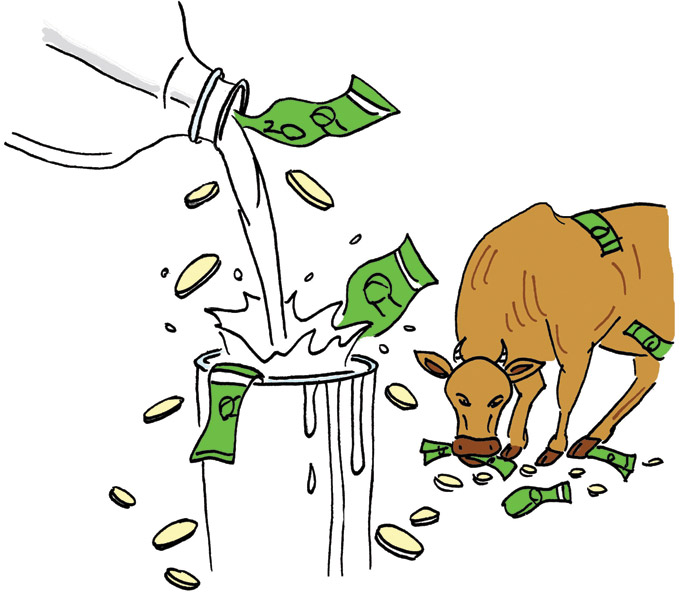Most Canadians have probably heard of the term ‘supply management,’ though many probably only have a vague idea of what it means.It is an intricate web of government-imposed quotas and licenses that limit the number of producers and production of dairy products such as milk and cheese, as well as poultry. The government also levies steep tariffs on foreign agricultural products, ensuring that they can’t provide a low cost alternative. These actions disadvantage consumers at the expense of the farm lobby; consequently, the federal government should abolish supply management.
These actions limit the supply of certain agricultural products, leading to farmers earning much higher incomes and consumers paying much higher prices for these food items than they would in a free market. Supply management redistributes wealth upward, from low and middle-income consumers to affluent farmers, and is an impediment to Canada successfully negotiating free trade agreements.
In a recent study, three University of Manitoba economists argue that supply management raises the prices of such products as milk in Canada by up to 69 per cent relative to the United States.While the economists accept that supply management may not be the only factor contributing to higher prices, they contend that it keeps prices substantially elevated over what they would be in its absence. Though this bolsters the incomes of farmers, often already wealthy, it places an undue burden on low-income Canadians. While high-income Canadian families spend approximately 8.1 per cent of their incomes on food, Statistics Canada reports that low income Canadians spend up to 14.1 per cent of their income on food. The University of Manitoba study states that supply management costs low income Canadians up to 2.3 per cent extra of their income in food bills annually. Therefore, while supply management leads to higher farm incomes, these higher incomes come at the expense of the poorest members of Canadian society.
If this upward redistribution of wealth is not sufficient reason to abolish supply management, consider the fact that it serves as a significant barrier to Canada reaching free trade agreements with foreign nations., Many trading partners—rightly so—regard the quotas and tariffs as an implicit subsidy to the domestic agricultural sector. This is key in trade partners’ reluctance to open their domestic markets to Canadian agricultural goods. In Trans-Pacific Partnership negotiations, Australia, which abolished its own supply management system in 2000, has refused to sign unless Canada does the same. After all, why would Australia allow Canadian products preferential market access when their agricultural exports would be subject to taxes of 150 to 300 per cent?
The barriers that supply management places on the ability to negotiate trade agreements could be damaging to Canada’s economic future. For example, joining the Trans-Pacific Partnership would give Canadian exporters access to a market of 2.5 billion consumers, comprised of nations whose total Gross Domestic Product is $35 trillion.
Australia provides a lesson in how to abolish supply management. For a period of eight years after abolishing supply management, the Australian government used the proceeds from a modest tax on agricultural goods to compensate farmers who owned production quotas. Compensation levels were adjusted for the length of time a farmer had owned a quota. Farmers who only recently purchased quotas received higher payments, while long-term owners of production quotas received less, as they had a longer period of time to benefit from the artificially higher prices. Surely a similar system could be implemented in Canada.
Therefore, given the harm supply management does to economic prospects and the regressive burden it places on low income Canadians, this antiquated system should be abolished.










Fuck ya buddy